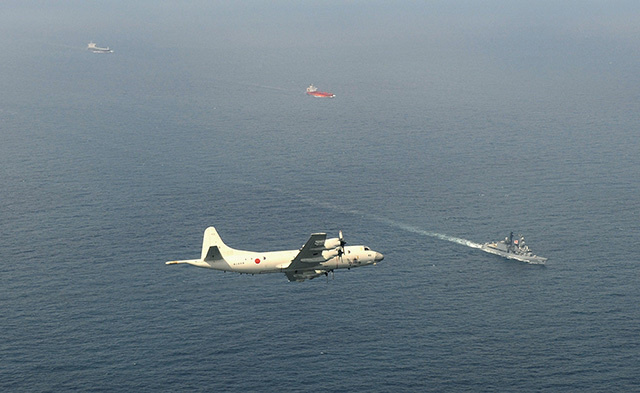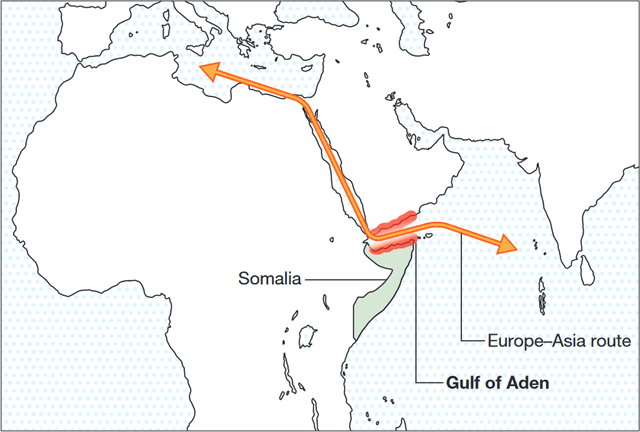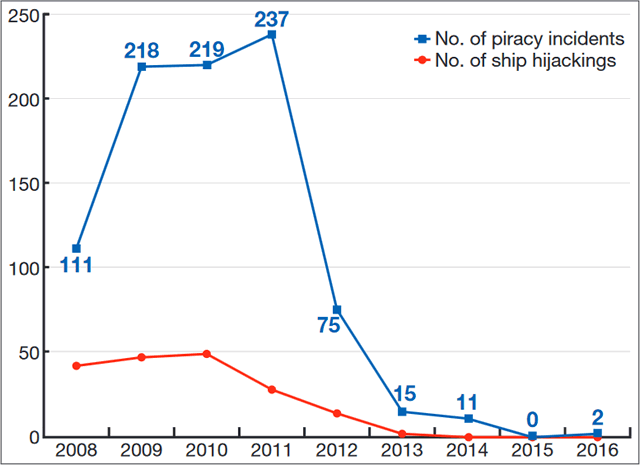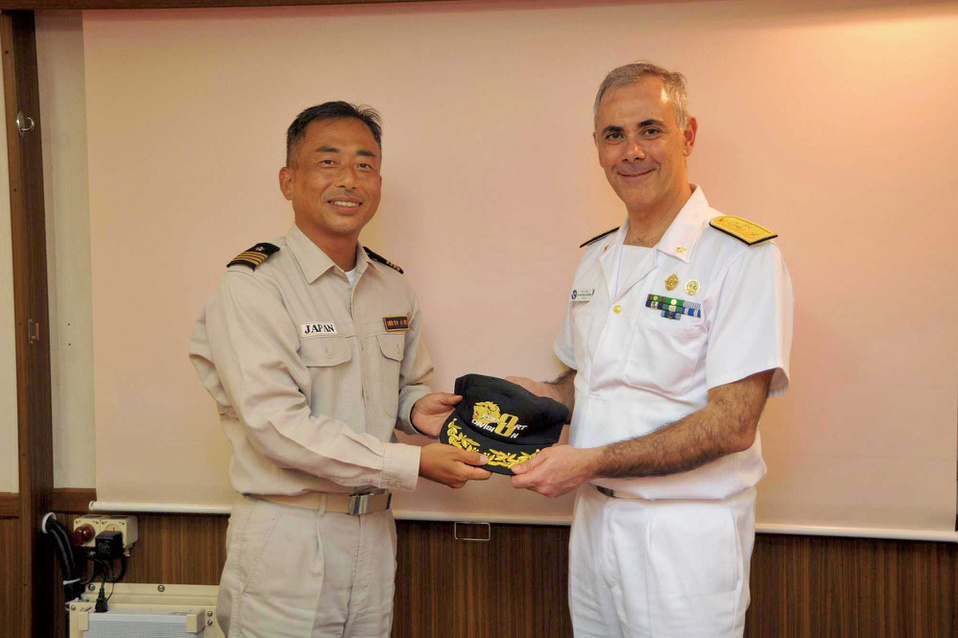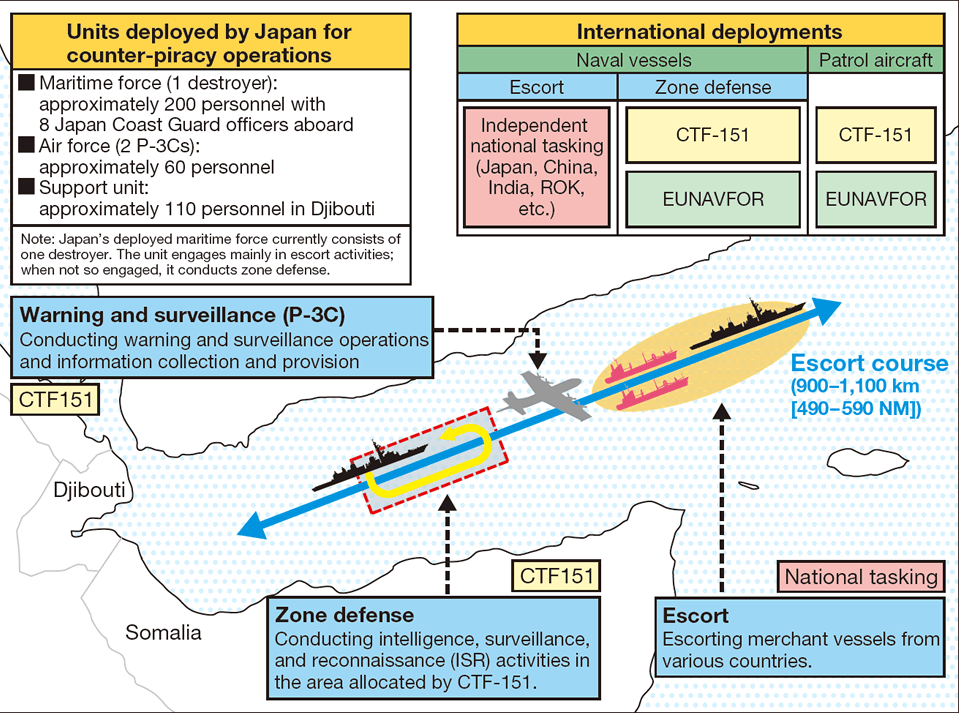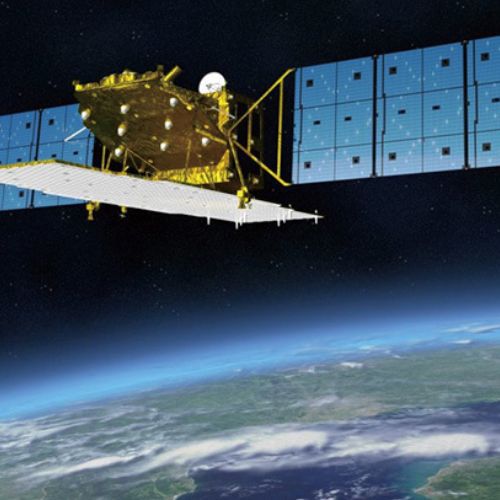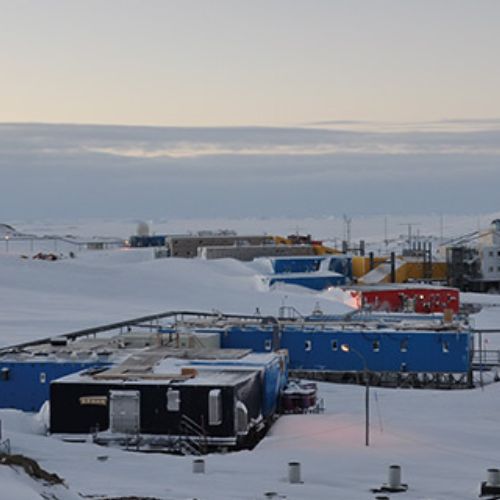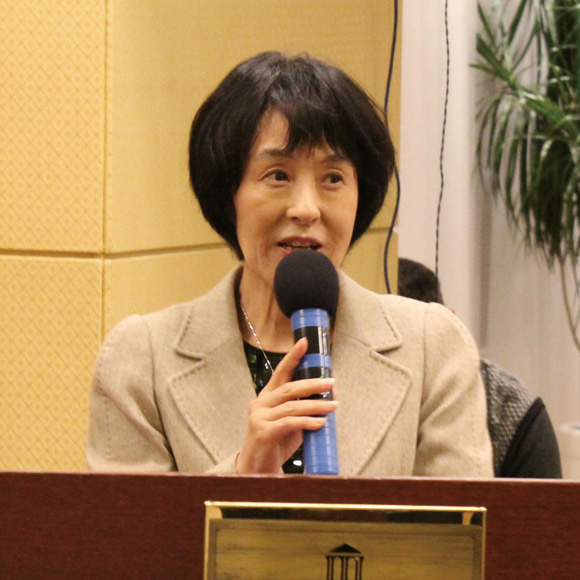A choke point for maritime transport between East Asia and Europe lies in the Gulf of Aden off the coast of Somalia, through which about 17,000 ships are said to navigate every year. But from around 2008 on, there was a sharp increase in attacks on merchant ships in these important waters by ransom-seeking pirates. Among the causes of piracy were the political turmoil and poverty in Somalia. The safety of maritime shipping, which plays a major role in international trade, is crucial for Japan. In view of this, and in order to contribute internationally, since 2009 Japan has deployed destroyers and patrol aircraft from the Japan Self-Defense Forces (JSDF) to escort ships and conduct surveillance in the Gulf of Aden. These activities are conducted without regard to the ships’ nationality, and over the eight years of the deployment the Japanese forces have escorted some 3,900 merchant ships through these waters.
Captain Atsushi Minami, who commanded the JSDF’s 25th Deployment Surface Force for Counter-Piracy Enforcement, declares, “From 2009 the JSDF deployed one or two destroyers and two P-3C maritime patrol aircraft, and we’ve been conducting escort missions in which we accompany merchant ships as they pass through the area. The P-3Cs have been making surveillance flights on close to a daily basis. In this way we have been serving as a key element in the international community’s cooperative efforts to counter piracy.” And to further advance international coordination of these efforts, since 2013 Japan has also participated in the international Combined Task Force 151 (CTF-151), in which each country conducts zone-defense activities in its allocated area.
The Japanese destroyer Hamagiri and P-3C patrol aircraft performing an escort mission in the Gulf of Aden.
The Gulf of Aden off the coast of Somalia is a severe environment with daytime temperatures reaching 50°C (122°F). Members of the deployed units maintain a constant state of alert under these extreme conditions so as to be able to respond promptly to requests for help. Inside the ships are displayed messages of thanks from those who have been protected or rescued. Minami says that these expressions of gratitude are the strongest motivation boosters for unit members as they prepare themselves for future missions.
Thanks to the international anti-piracy campaign, the number of maritime piracy incidents, which amounted to more than 200 a year, declined sharply from 2012 on, and recently the level of the figures has been extremely low. But the coordinated international initiative remains essential for the maintenance of shipping safety in these waters. Minami explains, “Pirates in the area have not been completely eradicated. I believe that the visible presence of naval vessels from various countries is working to deter piracy. Protecting the significant international shipping lane off the coast of Somalia is a crucial mission for the sake of stability of East Asia’s economy. We will continue our activities in cooperation with other countries.” The Japan Self-Defense Forces will keep up their contributions to the peace and stability of the international community.

























